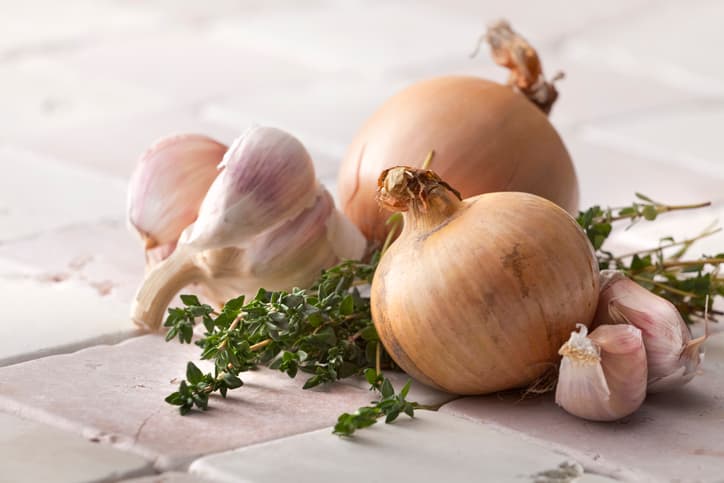 Got bad breath? You may want to take a look at your diet.If your dental hygiene is great — you brush your teeth twice a day, floss once a day, and clean your tongue — your bad breath could be linked to your diet.Certain foods can taint your breath for hours and contribute to dragon breath in other ways. Here are some of the culprits:
Got bad breath? You may want to take a look at your diet.If your dental hygiene is great — you brush your teeth twice a day, floss once a day, and clean your tongue — your bad breath could be linked to your diet.Certain foods can taint your breath for hours and contribute to dragon breath in other ways. Here are some of the culprits:
Garlic and onions. “Garlic and onions top the list when it comes to halitosis,” says Lisa Harper Mallonee, MPH, RD, associate professor at Texas A&M Health Science Center Baylor College of Dentistry.
That’s because the smelly sulfur compounds in garlic and onions linger in your mouth and are absorbed in the bloodstream and expelled when you exhale.
Coffee and alcohol. Coffee and alcoholic drinks create a favourable environment for oral bacterial growth. They also have a drying effect, which reduces saliva flow and when can allow foul-smelling bacteria to linger longer.
Several other foods – including dairy products, a diet heavy in meat, orange juice, and soda – sometimes get talked about as bad breath triggers. Mallonee says she doesn’t have “any sound scientific evidence” about that.
Foods and Drinks That Make Your Breath Smell Good
Water. This odour-free fluid helps flush from the mouth the bits of food bacteria feed upon. Drinking water promotes the production of saliva, which acts as a constant cleansing agent and dissolves stinky substances in food and drink.
Sugarless gum. Chewing gum can loosen food and dead cells from the teeth, gums, and tongue and fosters saliva production.
Continued
Herbs and spices. Parsley contains chlorophyll, which may have a deodorizing effect in the mouth. Other plant products linked to better breath include cloves, anise, and fennel seeds. While employing herbs and spices to mitigate bad breath is rooted more in folklore than science, it doesn’t hurt to try.
Why Your Breath Gets Stinky
The most common cause of bad breath isn’t smelly food. It’s bacteria in your mouth.
“The microbes that reside in your mouth feast on food particles and dead cells, producing sulfur compounds that cause halitosis,” Harper Mallonee says.
Brush your teeth twice a day, and floss once to remove the debris that results in bad breath.
Bad Breath Can Signal Medical Conditions
If your dental hygiene and your diet are in order, but your halitosis won’t quit, it may be time to consult a doctor or dentist.
Bad breath can result from certain health conditions.
Blocked sinus passages and post-nasal drip may result in the bad breath that will eventually pass. Persistent halitosis can be a sign of something bigger, so be sure to consult your doctor.
